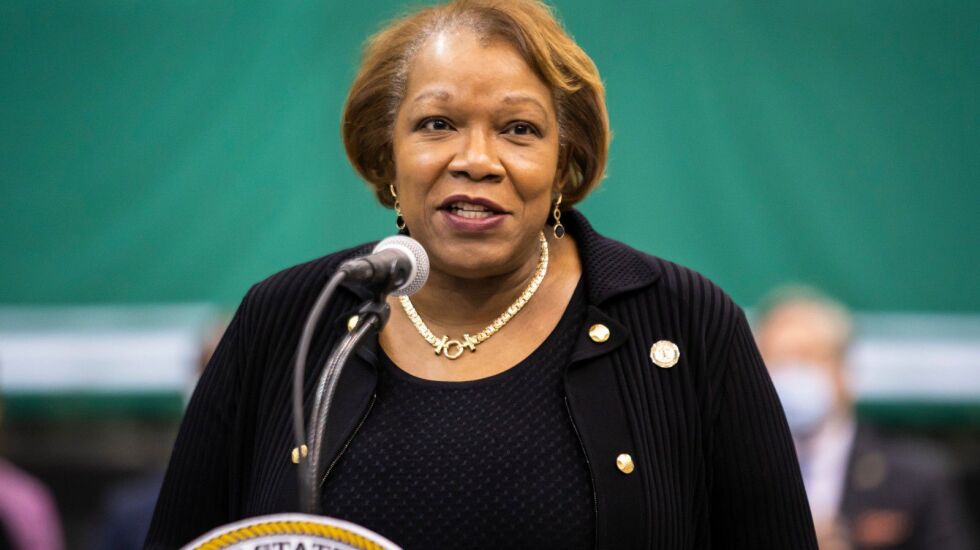
College enrollment for Black students in Illinois has dropped more than one-third since 2010, according to the Illinois Board of Higher Education. This decline at two- and four-year colleges comes on the heels of rising tuition costs and student debt.
Chicago State University President Zaldwaynaka “Z” Scott is on a mission to reverse the trend. Her regional public institution serves a majority-Black student population on Chicago’s South Side. The university has faced limited state funding and enrollment drops — and in the spring, a strike by faculty over working conditions.
Since taking office in 2018, Scott says she has worked to improve recruitment and retention of students of color with initiatives like the RISE program. It provides academic preparation and free tuition for a year to incoming freshmen.
WBEZ Higher Education Reporter Lisa Philip caught up with Scott to reflect on the past year and to look ahead. Scott grew up a mile from Chicago State’s campus and just wrapped up her fifth year as the university’s president.
As a Black woman, what challenges do you face that other university presidents do not?
First of all, longevity. Female presidents last about 3.4 years. And so our time can sometimes be more brief because of the challenges that come from being both Black and female.
I know that I have to work within that framework. It will be here when I retire. And I hope that I’m empowering the next group of women leaders, and Black leaders, with the understanding that you can still reach for greatness, you can still be great and also manage systemic racism. And stay true to be authentic and stay true to your gender identity. It is what it is, right?
I mean, I’m not gonna fall down because I’m experiencing racism. From the time that people didn’t recognize me as a lawyer in the courtroom and believed that I was a defendant rather than the person representing the United States, to a time when I’m the only Black person in the room who is a part of an important meeting. And people think that I’m the secretary who’s supposed to be making copies of documents. … You pull up your seat to the table and sit down and just get down to work.
You and the presidents at two other regional universities saw strikes this spring, and you’re now on the other side. But a lot of the underlying issues of limited funding and enrollment challenges are still there. How do you and other university leaders in the area move forward given those challenges?
A strike is unfortunate. It really is an unfortunate experience, not only for the faculty but for the administration and our students, it was a difficult time. But we moved through it, and I think … we’ve come out on the other side stronger.
There is a need for increased communication with our faculty around our resources. I cannot pay what some of the more more profitable institutions can pay. I can’t, we can’t. But we can be as competitive as we can be, in what we can do for our faculty.
What have been your biggest takeaways from your time leading Chicago State?
My biggest takeaway [is] the incredible faculty that we have.
Our faculty have some academic credentials from some of the most incredible institutions in this country. Many of them, and most of them, could work anywhere else. But they’ve chosen to commit themselves to Chicago State.
And it’s not just a commitment to academic excellence, it’s also a commitment to the student population that we serve, where our average age is 29. Thirty percent of our students are student parents … 96% of our students qualify for Pell grants [a federal grant reserved for students from low-income families], which tells you the level of economic need that is in our student populations.
There is a broader questioning of the value of higher education, given the rise in college costs and student debt. How do you as a university leader justify the investment?
Who’s bringing that argument to the table — the same people who are sending their families to college, who are able to emerge on the other side without debt.
The data is so clear. A college education means that you will earn more in your lifetime, that you are more likely to be civically engage and vote and all those other things that come with civic engagement in your lifetime — that your communities are stronger, that you will live longer.
All of these things will support a strong minority population in our state. So we should be encouraging college enrollment for those who are interested and looking at ways that we can support students so that they can emerge debt-free.







